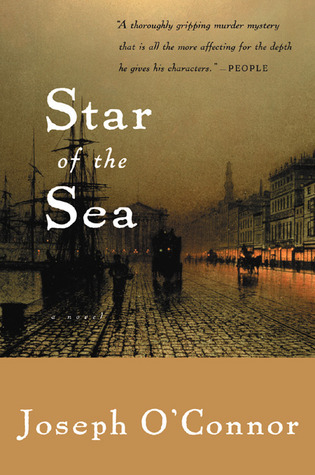What do you think?
Rate this book


432 pages, Paperback
First published January 1, 2002
"He remembered their eyes, so frightened and convinced. The black stained sackcloth of the hooded masks they wore. The slashed out holes where their mouths appeared. They were wielding the tools of their livelihood, but as weapons -- scythes, mattocks, loys, billhooks. Now they had no livelihood left. Centuries stolen in one stunning moment. Their fathers' labour; their sons' inheritances. At the stroke of a pen, they were gone.
Black and green fields. The green of the banner draped across the table, spattered with ribbons of Mulvey's blood. The glint of the weapon they had made him take, the fisherman's knife pressed to his chest, while they raged at him about freedom and land and thievery. The words SHEFFIELD STEEL etched into the blade. He could feel it now, in the pocket of his greatcoat, nestled to his lacerated thigh. He remembered the things they said they would do with that knife if he didn't stop whingeing about murder being too heavy to put on him. When they held him down and started to cut him, Mulvey screamed to be allowed to kill."
Maritime wreckage. Bone and driftwood. Darker now: the wind blasting and stopping, like exchanges on a battlefield when ammunition is low. Everything had a blue and shadowy look.
Sometimes we "heard" voices of some of the passengers; each was distinct. The plot presented some as contemporaneous interviews, letters [even to misspellings and Gaelic], an excerpt from a novel of the newspaperman, as songs or prayers. One chapter was a litany to the Virgin Mary; I could hear the frightened steerage passengers reciting the words. I could feel the captain was a compassionate Quaker through his writing. I really empathized with the characters and their conditions. I felt the stench and squalor of steerage conditions. I appreciated the long and detailed "Notes & Acknowledgements" at the end; I feel the reality and truth of the novel.
Highly recommended.